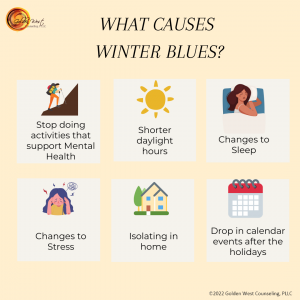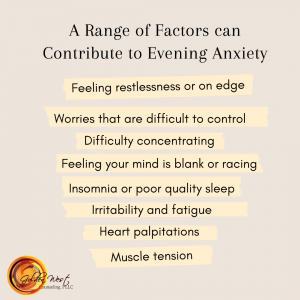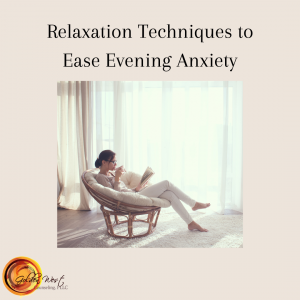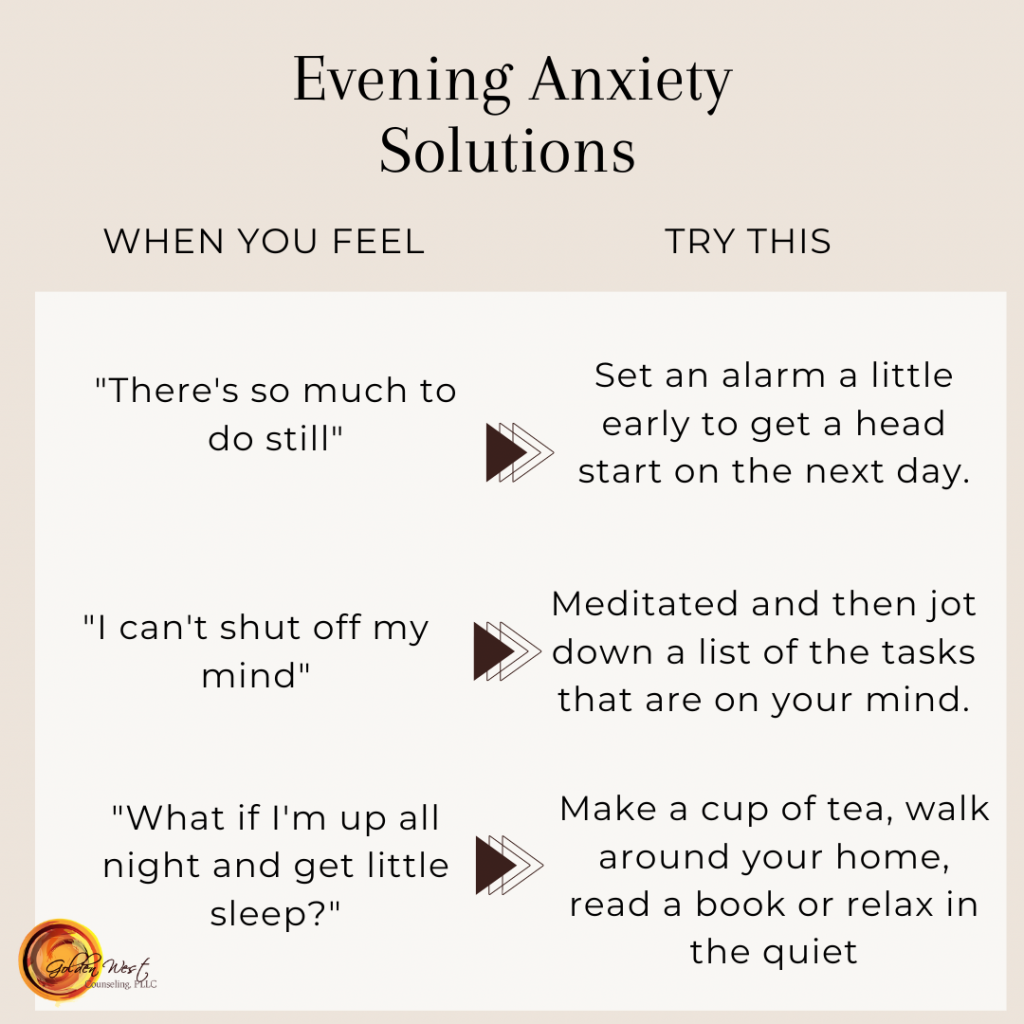 We all experience anxiety differently. For some, they wake up struggling through their anxiety. While they may feel their anxiety throughout the day, the majority of their anxiety is felt in the morning.
We all experience anxiety differently. For some, they wake up struggling through their anxiety. While they may feel their anxiety throughout the day, the majority of their anxiety is felt in the morning.
But then there are others who experience their anxiety worsen in the evenings. They too have anxiety throughout the day, yet during the evening hours their anxiety spikes as they wind down.
When anxiety ramps up at night, it can be a serious annoyance that takes a toll on your ability to sleep and focus on the next day’s requirements.
 A range of factors can cause or contribute to evening anxiety. Some symptoms include:
A range of factors can cause or contribute to evening anxiety. Some symptoms include:
● Feeling restlessness or on edge
● Worries or concerns that are difficult to control
● Difficulty concentrating
● Feeling your mind is blank or racing
● Sleep disturbances, including insomnia or poor quality of sleep
● Irritability and fatigue
● Heart palpitations
● Muscle tension
There are a number of reasons why you might find your anxiety worsen in the evenings. The evening tends to bring less stimulation or distractions to your mind, therefore the opportunity for worrying thoughts increases. During the day you may find that daily tasks occupy your brain and keep anxiety in the background, but once the evening hours rolls around and you begin to settle for the day, there are less things your attention is able to latch onto.
Thinking about not being able to fall asleep, health concerns, stressors from the day or anticipating stressors for the next day keeps you from falling asleep at night

Build a Relaxing Night Time Routine
Similar to slowing your car down by easing on the brakes for a smoother stop, slowing down your brain in the evening in a similar fashion can significantly decrease evening anxiety. Here are some tips to relaxing mind at night:
Schedule an evening wind down start time: In the 1 to 2 hours leading up to bedtime create a routine that begins to signal to your brain that it’s time to slow down. Brew a cup of chamomile tea, listen to calming music or meditation, brush your teeth, shower, wash your face, brush our teeth, direct your attention away from your phone, or read a book.
Put distracting thoughts on paper: Taking a few minutes (even 5) to get your worries on paper and out of your mind can make it easier to relax your mind. This may look like a to do list, brain dump or evening planning out your next day.
Remove engaging with exciting or over stimulating content: Avoid excessive scrolling and nail biting entertainment. Endless thumb scrolling, cliffhanger TV shows and video games that tempt you to have “just another 5 minutes” cause cognitive arousal.
Take a warm bath or shower: While it sounds counterintuitive, warm water can help lower your body temperature, which is shown to promote sleep.
Dietary changes: Certain foods wake some people up at night or even cause acid reflux. Be mindful of hidden caffeine in drinks and reframe eating food close to your bedtime hygiene routine.

Use Relaxation Techniques to help Ease Evening Anxiety
A good evening hygiene routine can help you get the sleep your body needs, but on evenings when anxiety and stress threaten to keep you up all night, it helps to have tools to put a wrench in your body’s stress response. Adding relaxation techniques to your wind down routine, can help train your mind to release anxiety producing thoughts and get into sleep mode. Try the following relaxation techniques:
Progressive Muscle Relaxation: This helps to remind your body what it feels like to release tension. Starting from your toes and moving up your body. Focus on tensing parts of the body for 10 seconds and slowly release.
Breathing Techniques: Deep belly breathing helps to naturally relax the body. Diaphragmatic breathing is a deep breathing technique to engage the diaphragm to encourage a lower heart rate and stabilize blood pressure. Try breathing in from your diaphragm for a 4 count, hold for 4 counts, release for 4 counts, and hold for 4 counts. Repeat until you fall asleep.
Yoga or Gentle Stretching: Not only does the movement in Yoga increase levels of gamma aminobutyric acid (GABA), a neurotransmitter that slows activity in the nervous system, therefore calming stress, it also encourages deep breathing.
Meditation or relaxing sounds: From white noise machines to guided meditations, they both can help induce feelings of calm and relaxation. Try using apps such as Calm, Headspace, or Insight Timer.
Gain Control with Psychotherapy
Evening anxiety can feel overwhelming and can significantly affect a person’s quality of life. Thankfully there are a number of techniques to calm night time anxiety. If anxiety is getting in the way of a restful night’s rest, give us a call and schedule a complimentary consultation with one of our Counselors.


